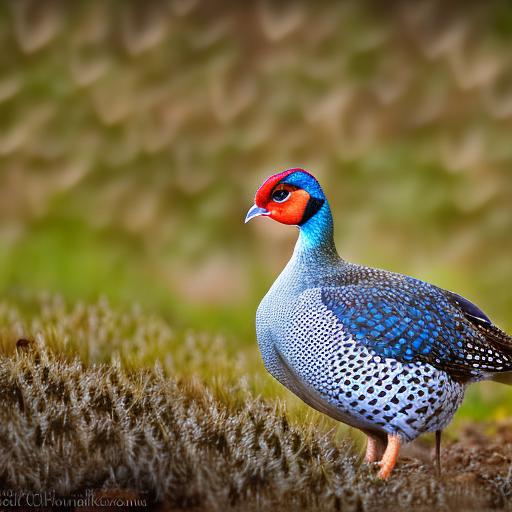Guinea fowl, also known as guinea hen or pintade, are a type of poultry that are native to Africa. They are known for their distinctive appearance, with speckled feathers and a helmet-like crest on their heads. Guinea fowl are popular for their meat, eggs, and pest control abilities. They are often kept on farms and homesteads for their ability to eat insects, ticks, and other pests, making them a valuable addition to any poultry flock.
Foxes, on the other hand, are a common predator of poultry, including chickens, ducks, and guinea fowl. Foxes are known for their cunning and stealth, making them a formidable threat to domesticated birds. They are skilled hunters and can easily sneak into a coop or run to snatch up unsuspecting prey. Foxes are a major concern for poultry keepers, as they can quickly decimate a flock if not properly managed.
Key Takeaways
- Guinea fowl are domesticated birds known for their ability to act as natural pest control and protect poultry from predators like foxes.
- Guinea fowl are highly social birds and have a strong flocking instinct, making them effective at alerting each other and other poultry to potential threats.
- Foxes pose a significant threat to poultry, including guinea fowl, as they are skilled hunters and can easily prey on unprotected birds.
- Guinea fowl have been observed to actively hunt and kill small rodents and insects, making them natural predators that can help control the population of pests on a farm.
- Studies have shown that guinea fowl can be effective in deterring foxes from entering a property, reducing the risk of predation on poultry.
The Behavior of Guinea Fowl
Guinea fowl are known for their vigilant and alert nature. They are highly social birds that prefer to live in flocks, and they have a strong instinct to protect their territory and flock members. Guinea fowl are excellent foragers and spend much of their time searching for insects, seeds, and other small creatures to eat. They are also known for their loud calls and vocalizations, which they use to communicate with each other and alert the flock to potential threats.
Guinea fowl are also known for their aggressive behavior towards intruders. When faced with a threat, guinea fowl will often band together and confront the intruder with loud calls and aggressive displays. This behavior makes them effective at deterring predators, as they are not easily intimidated and will put up a fight to protect themselves and their flock. Guinea fowl are also known for their strong flying abilities, which allows them to escape from danger and roost in trees or other high places to avoid predators.
The Threat of Foxes to Poultry
Foxes are a significant threat to poultry, including guinea fowl. They are skilled hunters that can easily sneak into a coop or run to snatch up unsuspecting birds. Foxes are known for their cunning and stealth, making them a formidable predator for domesticated birds. They are also known for their ability to dig under fences or squeeze through small openings to gain access to a poultry enclosure.
Foxes pose a serious threat to poultry keepers, as they can quickly decimate a flock if not properly managed. They are known for their ability to kill multiple birds in a single attack, often leaving behind a trail of destruction. Foxes can also cause stress and fear among the remaining birds, leading to decreased egg production and overall health issues within the flock.
Guinea Fowl as Natural Predators
Guinea fowl are natural predators of insects, ticks, and other small creatures that can be harmful to crops and other domesticated animals. They are highly effective at controlling pest populations due to their voracious appetite and keen hunting instincts. Guinea fowl are known for their ability to consume large quantities of insects and other pests, making them valuable allies in the fight against agricultural pests.
In addition to their pest control abilities, guinea fowl are also natural predators of small mammals and reptiles. They have been known to hunt and consume mice, snakes, and other small creatures that can pose a threat to crops and livestock. Guinea fowl are skilled hunters that use their sharp beaks and strong legs to capture and dispatch prey, making them an important part of the ecosystem in many agricultural settings.
Effectiveness of Guinea Fowl in Keeping Foxes Away
Guinea fowl have been shown to be effective at keeping foxes away from poultry enclosures. Their vigilant nature and aggressive behavior towards intruders make them formidable opponents for foxes and other predators. Guinea fowl will often band together and confront intruders with loud calls and aggressive displays, making it difficult for predators like foxes to gain access to the flock.
In addition to their aggressive behavior, guinea fowl are also known for their loud calls and vocalizations, which they use to alert the flock to potential threats. This early warning system allows the flock to be on high alert and ready to defend themselves against predators like foxes. Guinea fowl’s strong flying abilities also allow them to escape from danger and roost in trees or other high places to avoid predators.
Tips for Using Guinea Fowl to Protect Against Foxes

There are several tips for using guinea fowl to protect against foxes and other predators. First, it is important to keep guinea fowl in a flock, as they are highly social birds that prefer the company of others. A larger flock of guinea fowl will be more effective at deterring predators like foxes than a smaller group of birds.
It is also important to provide adequate shelter and roosting areas for guinea fowl, as they prefer to roost in trees or other high places to avoid predators. Providing secure fencing and predator-proof housing for guinea fowl will help keep them safe from foxes and other predators.
Additionally, it is important to provide guinea fowl with plenty of space to roam and forage for food. Guinea fowl are natural foragers that require access to a variety of insects, seeds, and other small creatures to eat. Allowing guinea fowl to roam freely in a large area will help keep them healthy and active, making them more effective at deterring predators like foxes.
Conclusion and Considerations for Using Guinea Fowl
In conclusion, guinea fowl are valuable allies in the fight against predators like foxes on poultry farms and homesteads. Their vigilant nature, aggressive behavior towards intruders, loud calls, and strong flying abilities make them effective at deterring predators like foxes from gaining access to the flock. By keeping guinea fowl in a flock, providing secure housing and roosting areas, and allowing them plenty of space to roam and forage for food, poultry keepers can harness the natural predator instincts of guinea fowl to protect against foxes and other predators.
When considering using guinea fowl as a predator deterrent, it is important to keep in mind that they require proper care and management to thrive. Guinea fowl have specific housing and dietary needs that must be met in order for them to be effective at protecting against predators like foxes. Additionally, it is important to consider the local regulations and ordinances regarding the keeping of guinea fowl, as some areas may have restrictions on keeping poultry or specific requirements for housing and care. Overall, guinea fowl can be a valuable addition to any poultry flock for their pest control abilities and predator deterrent instincts when properly managed and cared for.
Looking to keep your chickens safe from foxes? Check out this informative article on Poultry Wizard that discusses how guinea fowl can help keep foxes away from your chicken coop. The article provides valuable insights into the benefits of keeping guinea fowl as a natural predator deterrent. For more tips on keeping your poultry safe and secure, you can also explore their article on where to put a chicken coop and A-frame chicken coop designs.
FAQs
What are guinea fowl?
Guinea fowl are a type of bird native to Africa. They are known for their distinctive spotted feathers and loud, chattering calls.
Do guinea fowl keep foxes away?
Guinea fowl are known to be effective at keeping foxes away from a property. Their loud calls and alert nature can act as a deterrent to foxes, as they are known to be wary of potential threats.
How do guinea fowl protect against foxes?
Guinea fowl are naturally vigilant and will sound the alarm at the presence of predators like foxes. Their loud calls and quick movements can startle and deter foxes from approaching, making them an effective form of natural pest control.
Are guinea fowl a reliable method of fox control?
While guinea fowl can help deter foxes, they are not a foolproof method of fox control. Foxes are intelligent and adaptable animals, and may still find ways to access a property with guinea fowl present. It is best to use guinea fowl as part of a comprehensive approach to fox control, including secure fencing and other deterrents.
Are there any drawbacks to using guinea fowl for fox control?
Guinea fowl can be noisy and may not be suitable for all environments, such as urban or densely populated areas. Additionally, they may not be effective in all situations, as foxes can still find ways to access a property despite the presence of guinea fowl.
Meet Walter, the feathered-friend fanatic of Florida! Nestled in the sunshine state, Walter struts through life with his feathered companions, clucking his way to happiness. With a coop that’s fancier than a five-star hotel, he’s the Don Juan of the chicken world. When he’s not teaching his hens to do the cha-cha, you’ll find him in a heated debate with his prized rooster, Sir Clucks-a-Lot. Walter’s poultry passion is no yolk; he’s the sunny-side-up guy you never knew you needed in your flock of friends!







